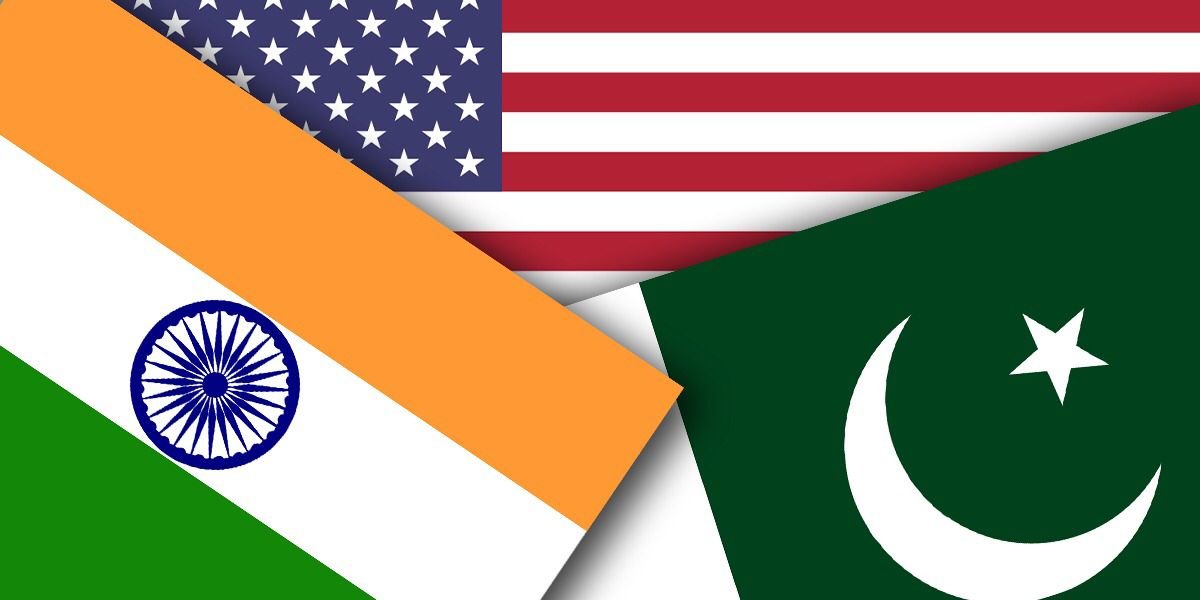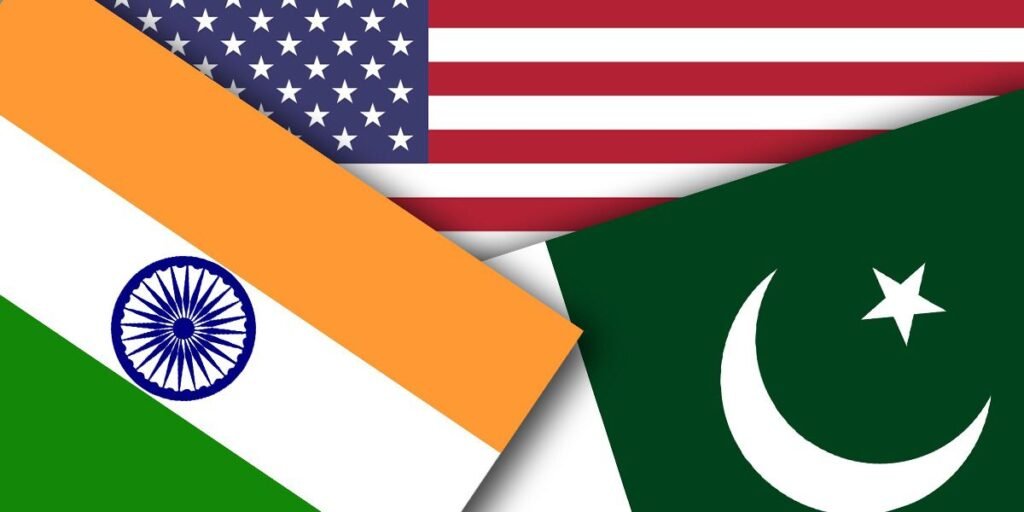17 May 2025
By Ashraf Siddiqui
Narendra Modi, the Prime Minister of India, represents the Bharatiya Janata Party (BJP), an organization widely recognized for its alignment with the Hindutva ideology. Notably, Mr. Modi was denied a U.S. visa for nearly a decade due to concerns about his alleged involvement in communal violence, until he assumed the office of Prime Minister.
During the recent India-Pakistan conflict, then U.S. President Donald Trump remarked that the two countries had been in conflict 'for centuries'. This perspective aligns with the BJP's narrative, although historically, India and Pakistan were established as independent nations only in August 1947 - over about 77 years before. The idea of an age-old conflict between the two nations is part of a broader political narrative promoted by the Hindutwa extremist forces including mainstream extremist militant group RSS under the patronage of ruling party BJP, which currently leads a government that, for the first time in over 2,000 years, is governed by a majority Hindu leadership in a unified Indian state.
Historically, the Indian subcontinent was ruled by various empires. The Mughal Empire, led by Central Asian Muslim rulers, governed the region for over 700 years and contributed significantly to its cultural and political unification, referring to the territory as 'Hindustan'. This was later renamed 'India' during British colonial rule, which lasted for around 90 years.
Instead of acknowledging the contributions of past Muslim rulers in unifying such a vast region, the subsequent governments since 1947, often expresses hostility toward neighboring Pakistan and fosters insecurity among Muslim and other minority communities within India. This approach undermines the rich, diverse heritage of the subcontinent and the principles of coexistence.
Pakistan has faced cross-border terrorism since its inception. Just two months and thirteen days after independence, Indian forces landed in Srinagar on October 27, 1947, leading India to approach the United Nations Security Council to request a ceasefire. The case is still unsolved and lying in UNSC shelf.
Again, on September 5, 1965, Indian forces launched an attack on Pakistan across multiple borders. In 1971, India played a direct role in the breakup of Pakistan by sending commandos and trained armed groups in East Pakistan, ultimately resulting in the creation of Bangladesh. Following this, then Indian Prime Minister Indira Gandhi reportedly stated that she had avenged the centuries of Muslim rule in India — a sentiment that echoes the present-day narrative advanced by the BJP.
This ideology, now championed by the BJP and its militant affiliate RSS, has often translated into threats and coercion against India’s Muslim minority, pressuring them to adopt Hindutva beliefs or leave the country.
During over last two decades only more than 100,000 Pakistanis have been affected by cross-border terrorism, particularly in regions such as Balochistan and Khyber Pakhtunkhwa. For instance, on March 11, 2025, Indian-backed proxies hijacked the Jaffer Express train in Pakistan, resulting in the deaths of 18 soldiers, 33 attackers, and many civilian casualties. Similarly, on February 18, 2007, the Samjhauta Express — a train carrying passengers from Pakistan — was targeted near Panipat, India, leaving over 70 Pakistanis burned to death.
These are among numerous such incidents over the decades. India has also faced allegations of cross-border terrorism from international actors, including Canada and the United States.
Recently, the world witnessed an alarming escalation in South Asia when, during the night of May 6th - 7th, 2025, India launched strikes on six civilian locations within Pakistan using Israeli-made Harop drones. Following this, India attempted to deploy its air power and even moved an aircraft carrier toward the region but quickly withdrew. In accordance with international law, an attack on a sovereign state grants the right to respond, and Pakistan exercised this right. India subsequently launched two more attacks on Pakistani installations and on civilian population including one on the Pakistani-administered region of Kashmir. Pakistan responded in kind, asserting its stance of retaliating only when its sovereignty is challenged.
The situation eventually de-escalated following international mediation, notably involving U.S. President Donald Trump and several countries with friendly ties to Pakistan, leading to a ceasefire agreement. Pakistan agreed to the ceasefire, consistent with its long-standing position that it will respond only to direct provocations threatening its sovereignty.
In the aftermath of India’s unsuccessful 'Operation Sindoor' and its failed attempt to assert dominance in the region, the Indian government has announced plans to send seven multi-party delegations of parliamentarians to major global capitals starting May 23. These delegations aim to present a unified stance against Pakistan and to deflect attention from internal and regional challenges by labeling Pakistan a sponsor of terrorism. Ironically, India itself maintains strained relations with nearly all of its neighboring countries - Pakistan, China, Bangladesh, Sri Lanka, Nepal and Bhutan.
At a time when regional blocs like the EU, ASEAN, and the Central Asian states are working collectively for mutual development—representing a population of over two billion—the South Asian Association for Regional Cooperation (SAARC) remains stalled, largely due to India's obstructive approach to regional cooperation. This has hindered trade and investment, and created instability among neighboring nations.
For the betterment of the people of South Asia—including the citizens of India—it would be more productive if Prime Minister Narendra Modi had chosen to send these delegations to neighboring countries, with the aim of fostering cooperation, promoting trade, and building a peaceful and prosperous region. Instead, the current diplomatic effort seems focused on portraying India as a victim and victor, rather than addressing its internal narrative of superiority and external distrust.
There is still time for Indian leadership to shift focus—from fostering division and animosity—to building bridges. The people of India, Pakistan, Bangladesh, Sri Lanka, Nepal, and Bhutan deserve to benefit from regional cooperation through platforms like SAARC, and to be spared from further geopolitical misadventures.










